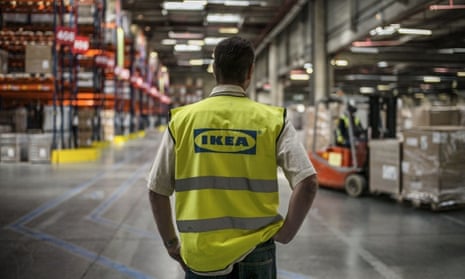A new study shows that when brands invest the time and effort to connect with customers, it pays. The report, Meaningful Brands, was conducted by global advertising agency Havas, and concludes that so-called meaningful brands enjoyed increased sales, better brand awareness and higher annual returns than other companies.
“A consumer is willing to spend more money on your brand if they consider you a meaningful brand,” said Maria Garrido, international marketing director for Havas. She added that the study, which was released on Tuesday, was a measure of “how we define wellbeing”.
According to Garrido, a meaningful brand offers three types of value to consumers: marketplace benefits, which include the value delivered by its products; personal benefits, such as what a brand does for individual customers; and collective benefits, which include what the brand does for society as a whole.
The study, which is conducted roughly every two years, surveyed 300,000 people in 34 countries and asked them how they felt about 1,000 brands spanning 12 industries. According to the findings, a meaningful brand has a 46% higher “share of wallet” – defined as how much a person spends on a particular product – than a low-scoring brand. In addition, the top 25 most meaningful brands outperformed the stock market by 133%.
Performing better
The authors of Meaningful Brands found that successfully branded companies routinely outmatched competitors on key performance indicators (KPI) such as brand awareness, purchase intent and premium pricing.
“For every 10% increase in meaningfulness, a brand can increase its purchase and repurchase intent by 6% and price premiums by 10.4%,” according to a Havas press release. “This statistically proves that a brand’s meaningfulness is a key driver of KPI success.”
Most brands perform adequately in two out of the three “meaningful” categories – the marketplace and the collective – but fall short in the personal realm by failing to establish a direct connection with the consumer, Garrido said. Meaningful brands, by contrast, earn top marks from consumers in all three categories.
Havas ranks companies according to how well they satisfy the three pillars outlined by Garrido. In this year’s study, South Korean telecom giant Samsung came out on top. “They do really well on the personal component,” she said. “They make people’s lives easier, giving them new ideas through a customized experience that people consider to be enriching their lives.”
Other top 10 companies this year included Google, Ikea, Visa, Nivea and Microsoft. In many cases, smaller companies outperformed their bigger competitors. Online payment system Paypal, for instance, was ranked at number 18, while financial services behemoth Mastercard came in at 26. Similarly, Japanese clothing company Uniqlo ranked higher than Spanish fashion chain Zara and Swedish apparel giant H&M.
Around the world, the Havas study found, companies are struggling to find a way to connect to their customer base in ways that “contribute positively toward their quality of life”. In the US, for instance, respondents only said they trusted 22% of brands. Fewer than 3% were perceived as having a positive impact on people’s sense of well-being.
“It’s pretty bleak,” Garrido said. “[Overall] 74% of brands could disappear and people wouldn’t care.”
By contrast, in developing countries in Asia, trust of brands tops out at 78%, and their perceived ability to impact people’s lives in a meaningful way was 38%.
The discrepancy is due in part to the sociology of economic development: as a country develops its middle class, its citizens tend to become more discerning and, as Garrido said, “brand agnostic”.
Either way, the study is sure to get companies thinking about their long term strategies to win over customers and keep them coming back – not just for the profit, but for the right reasons.
“Brands should play a role in improving quality of life,” Garrido said.
“When we buy into brands, we are looking to improve our lives, not just to buy products. We care about brands more when they enhance our personal wellbeing and the wellbeing of the communities and societies we care about.”
The values-led business hub is funded by SC Johnson. All content is editorially independent except for pieces labelled “brought to you by”. Find out more here.

Comments (…)
Sign in or create your Guardian account to join the discussion